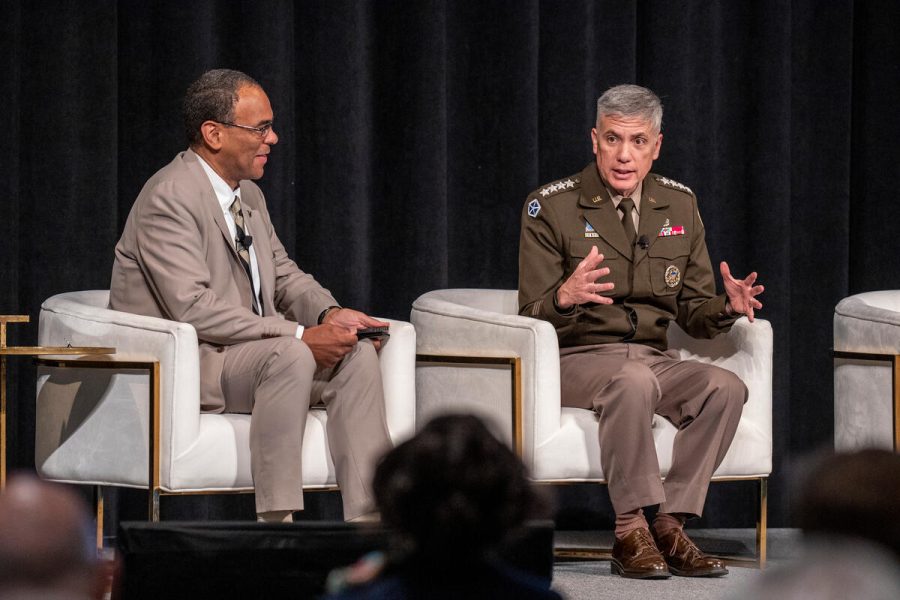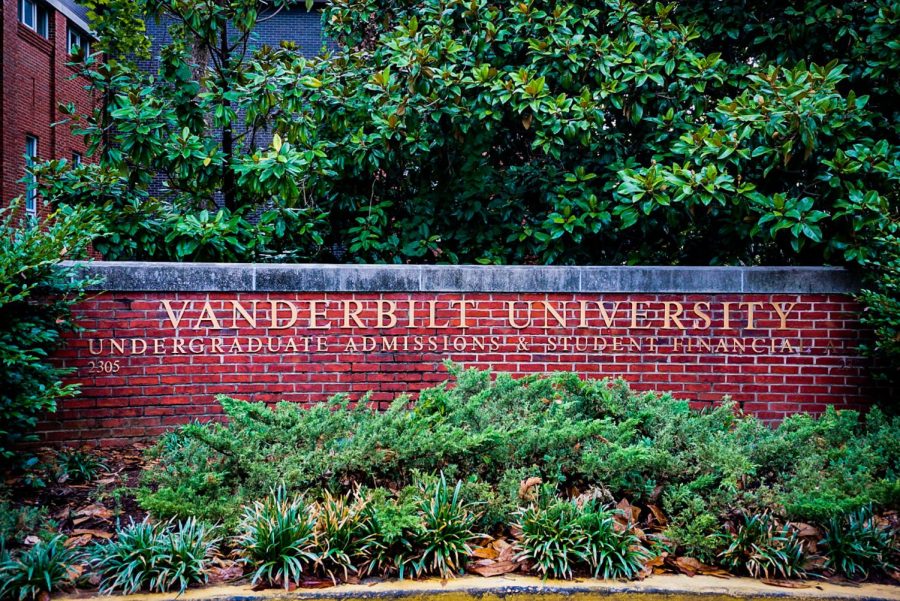The Feb. 13 Michigan State tragedy was the U.S.’s 67th mass shooting of 2023, once again stirring up heated emotions about our leaders’ passiveness towards gun violence.
In response, Peabody College’s Associate Dean for Equity, Diversity and Inclusion Nicole Joseph sent a condolence email on Feb. 16 to the community, crediting the AI text generator ChatGPT in the footing. The Vanderbilt Hustler first broke the headline, and a quick glance at the comment section reveals handfuls of blatantly racist comments, some unrelated entirely to the shooting — such as declaring diversity and inclusion initiatives as worthless. The Daily Mail went as far as sharing images of Joseph’s home and Facebook posts, arguing that the value of her home makes her EDI work hypocritical.
The adamant judgment and ongoing harsh criticism aimed at Joseph has proven to not solely be the product of some deep-seated aversion to gun violence nor a protest against administrative apathy toward grievous national matters. Rather, what may have begun as an exhausted universal stance against school shootings and a passionate outcry against the dismissiveness of university administration has turned into a national-scale and vulgar attack on a Black woman.
There are two women — the second being Assistant Dean of Peabody’s Office of EDI Hasina Mohyuddin — who were asked to step back from their roles due to this incident pending further investigation. Meanwhile, there is at least one known male professor at Vanderbilt with multiple sexual assault allegations. Our university just proudly hosted President Bill Clinton, the man behind a series of sexual misconduct allegations and an admitted adultery. That is not to say that these men didn’t deserve a second chance, but they were granted those chances with university backing. No support has been offered to Joseph publicly, with university leaders simply making impersonal statements on appropriate uses of AI in response. Students and faculty have received no communication from the university about the status of Joseph’s investigation or when she may return, if at all.
We’re taught that only certain people are offered second chances. This sentiment is drilled into both women and people of color from the earliest ages of academic and professional ambition; we must be twice as good to receive half as much. We cannot be on par with our white and male counterparts, nor can we make and recover from mistakes.
To me, it is laughable to believe that the many mass emails the Vanderbilt community receives from administrators following every unfortunate announcement of a student passing, every weighty national event and every prominent social movement was passionately and meticulously written by the email signers. As a student receiving consoling email after email about tragedy, I believe it has long been evident that scripts, templates and formulas probably have been the voices behind our university leaders. After receiving formulaic emails that sound eerily similar each time a tragedy occurs, it is hard not to assume that the university follows a script. All that separates these messages from the MSU response is that the true “author” was credited in the MSU response.
It is undeniable that artificial intelligence can’t replace the emotion behind human intelligence. The very least students deserve is to hear the authentic and unfiltered responses of their leaders when tragedy strikes. But, any argument specifically aimed against the ethicality of an administrator sharing words not written entirely by themself should have long ago challenged dozens of mass emails received by the student body with parallel intensities. Yet, past frustrations about email insensitivity have gained much less traction among the study body, including other emails about school shootings.
It is dangerous to prioritize the origin of the MSU response over the problem of gun violence. It is dangerous to undermine efforts to make minority students feel represented and included — and also deem diversity and inclusion a worthless waste of funding — over a moment of bad judgment. It is dangerous to — implicitly or explicitly, consciously or unconsciously — display prejudice when judging an individual’s actions. Cancel culture is harmful and misguided. I have heard more hateful comments directed toward Joseph than toward the MSU shooter.
In addition to continuing to hold The Hustler’s top trending spot since mid-February, the original ChatGPT email article has amassed over 60,000 views and has been followed up by multiple media outlets including CNN, The Washington Post, ABC and CBS.
The U.S. has a constant itch to tear people down and release suppressed bigotry and microaggressions disguised as “controversial opinions.” When there is no excuse to express racist, sexist, xenophobic, homophobic, antisemitic or Isalamphobic ideals, people wait in the wings for the slightest opportunity to validate their prejudices with the failures of those minorities. This phenomenon isn’t new; we see it in how the entire Islamic religion has been judged for the 9/11 attacks, how all immigrants are blamed for the immigration crisis or how Black men are stereotyped in the criminal justice system.
Black women are especially easy targets for the release of sexism and racism. To me, that’s why it’s not a surprise that an email intended for a campus community reached the doors of national news publications, has been the topic of thousands of Twitter threads and has remained trending for weeks on end as opposed to arguably heavier headlines. When Americans can finally scratch their itch, they will make certain to ruin as many careers and dignities as possible and exacerbate any evidence of minority misstep in the process.
Many of us were upset about the ChatGPT-written email because we care so much about the persistent danger of gun violence on college campuses and feel that the use of AI is inconsistent with responding to tragedy. Both sides of the aisle can agree that school shootings rank highly among our nation’s most shameful and pressing issues. We can agree that an artificially generated email response is not the appropriate action to support a freshly-wounded community of students. We could have agreed on those topics without nationally shaming our community members in the process. We could have focused our efforts on the real troubles at hand: school shootings and a lack of resources for a generation that grew up witnessing gun violence. We could have kept those troubles at the forefront by denouncing the racist and sexist comments of our peers, exaggerated and inaccurate portrayals of character, unfounded attacks on EDI and cancel culture. We could have demanded our campus leaders at least be consistent in how they respond to faculty issues and how they choose to support and reprimand employees in these situations.
We are now left to reflect and ask ourselves: In all of this clamor, what have we done for the issue of school shootings? What have we done for the victims of the shooting except move the spotlight away from their justice and onto our minuscule griping? What have we done as Vanderbilt students to leverage our education to facilitate today’s pressing conversations?
It is shortsighted of us to imply that a college administrator felt no personal dismay and anguish over the Michigan shooting. We can realistically assume that, despite the unethical method taken, there was some human thought behind the auto-generated email.
We have lost our ability to disconnect people from their mistakes, even from their very first offense. Until we do so, we are robbing ourselves and others of opportunities for learning and personal development. When will our community ever — as our university’s own motto challenges — “dare to grow”?













